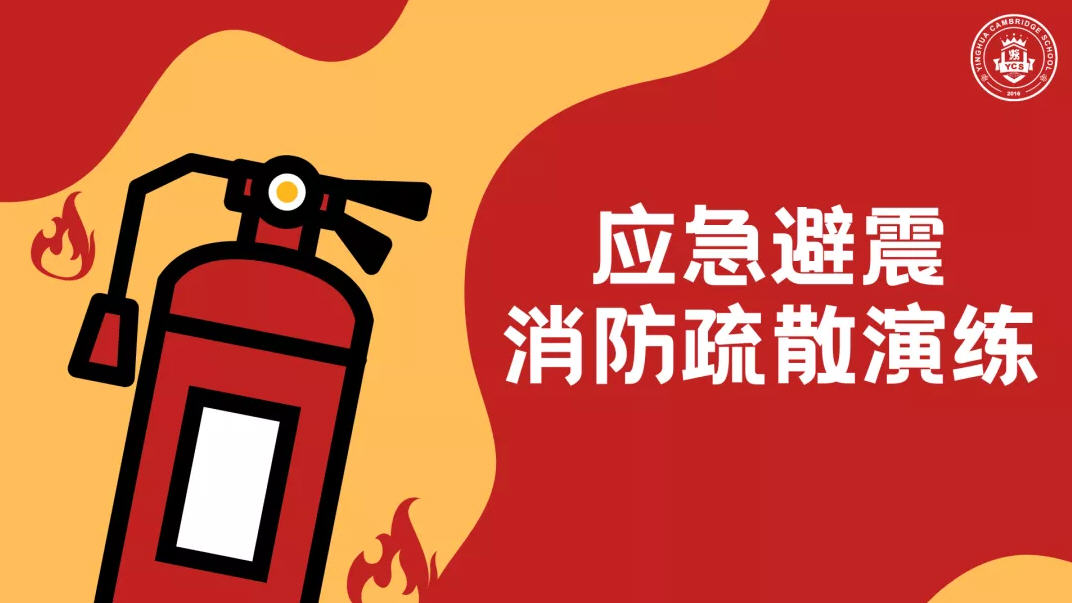
Emergency Evacuation and Fire Drill
周三下午,为了提高学生紧急避险、自救互救和应急疏散能力,英华组织开展了本次消防疏散演练。
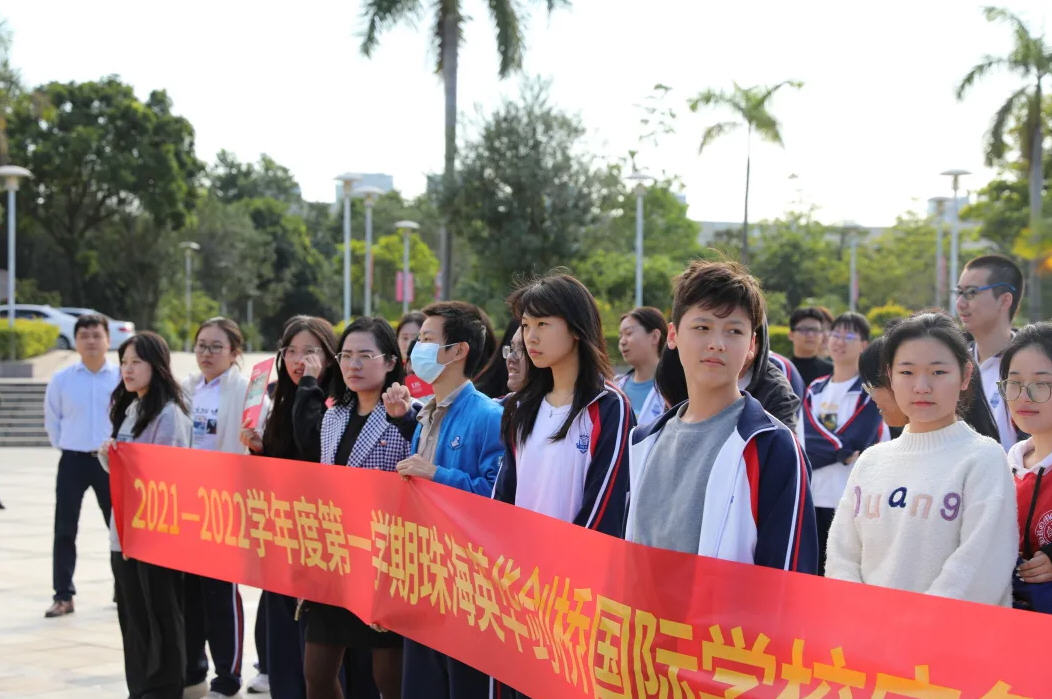
Yinghua organized this fire-fighting evacuation drill on Wednesday afternoon, in order to improve students’ ability of emergency avoidance, self-rescue and mutual rescue, and emergency evacuation.
// 注意防火 //
Pay attention to fire prevention
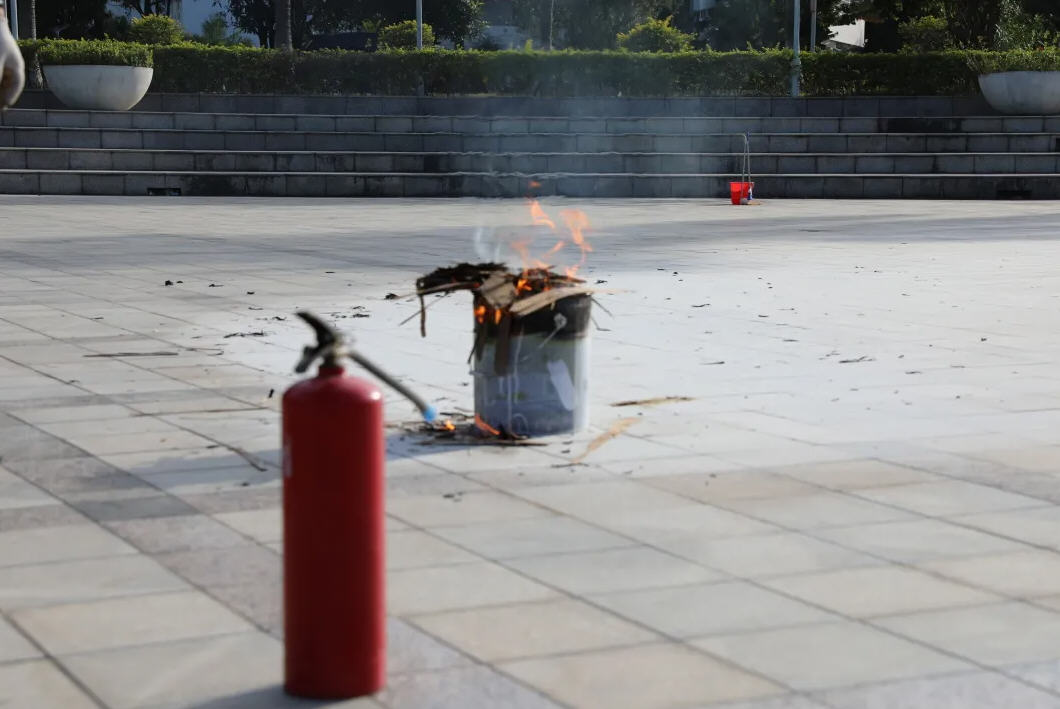
冬季风高物燥,学校人员密集,一旦发生火灾,危害十分严重!那么,校园消防安全有哪些需要注意的事项呢?让我们来简单的了解一下吧。
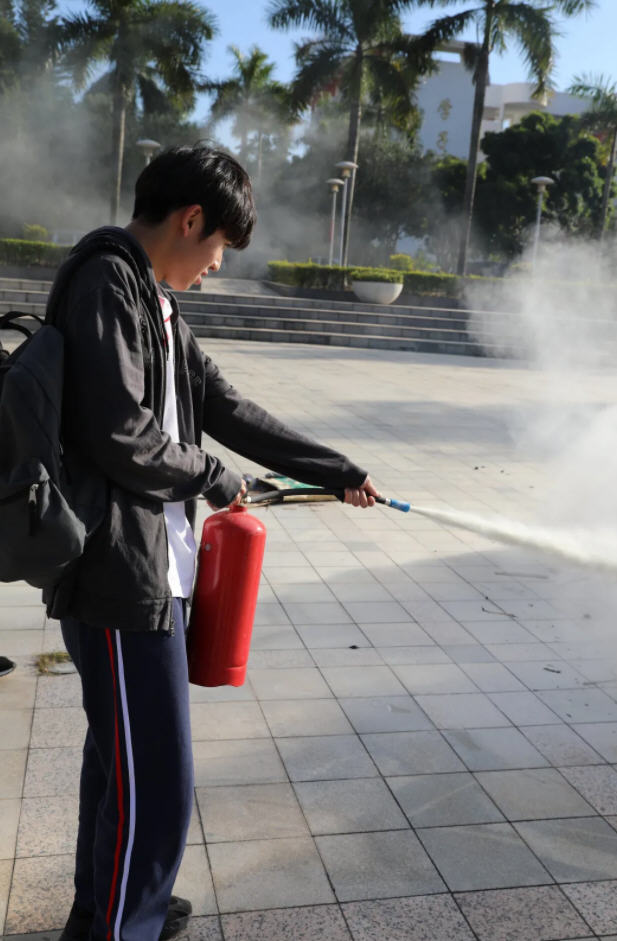
In winter, the wind is strong and the weather is dry, which is easy to cause fires. Schools are crowded with people. Once a fire occurs, the damage is very serious. What are the precautions for campus fire safety? Let's take a brief look.
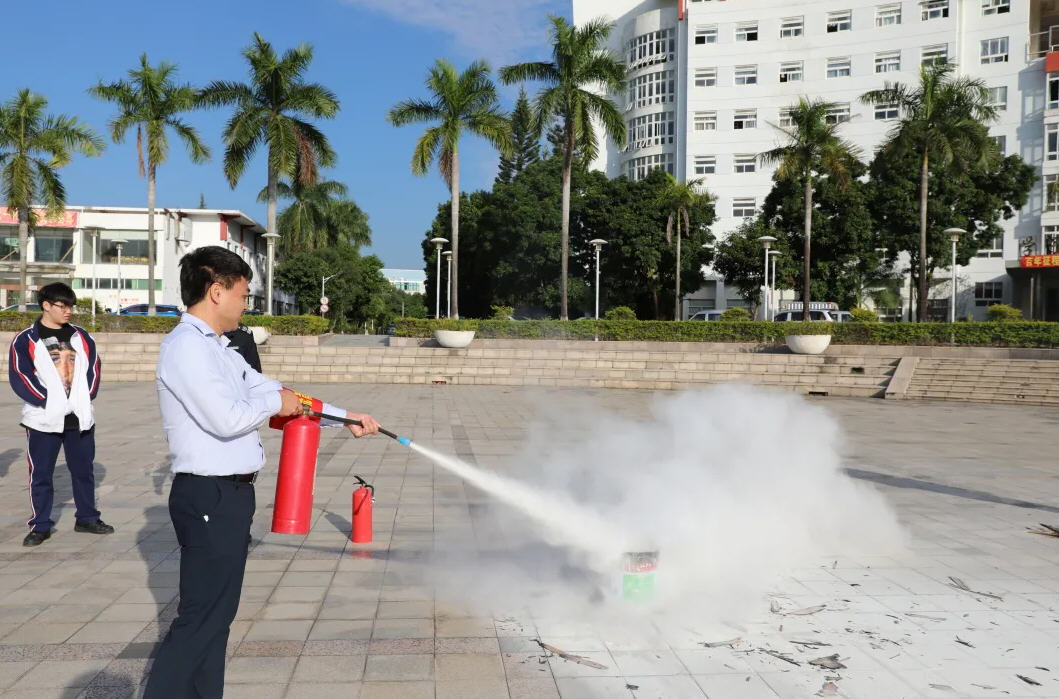
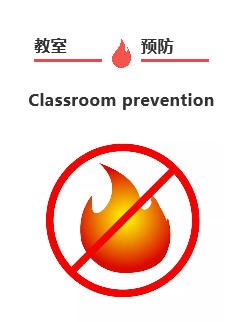
不携带火柴、打火机等火种进校园、进教室、更不可以携带汽油、烟花爆竹等易燃易爆物品进教室。
Do not bring matches, lighters, etc. into the campus or classroom, and do not bring flammable and explosive materials such as gasoline, fireworks and firecrackers into the classroom.
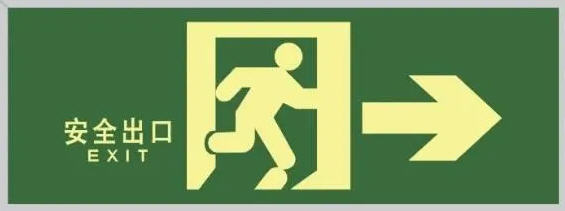
不在教室门口逗留、玩耍、打闹、保证教室门口通畅。
Do not stay, play, or run at the door of the classroom, and ensure that the door of the classroom is unblocked.
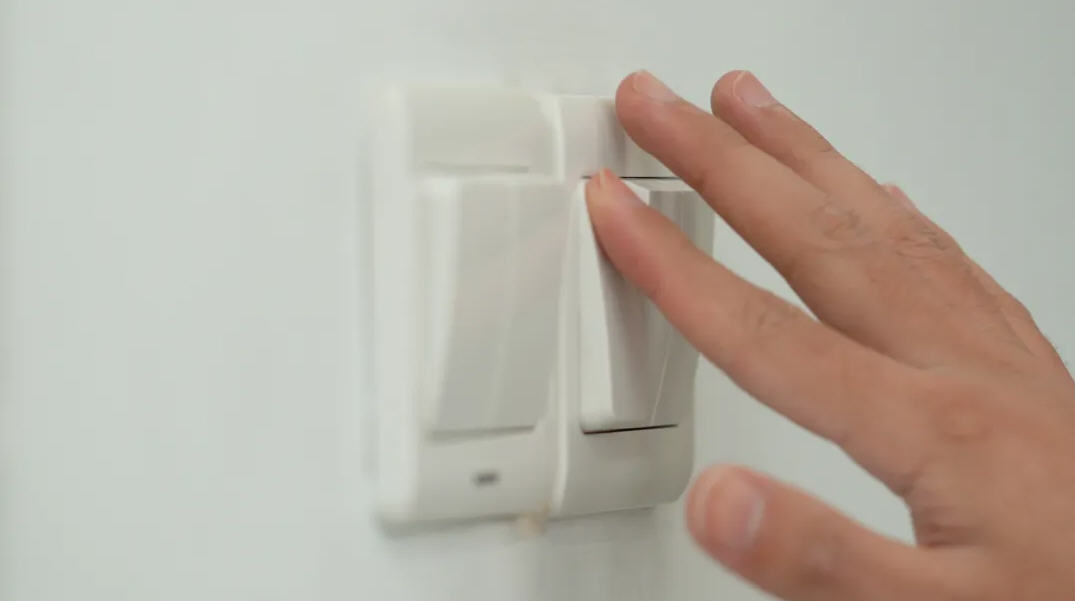
最后离开教室的同学要关掉教室的电器和照明开关。
Students who leave the classroom should turn off the electrical appliances and lighting switches in the classroom.
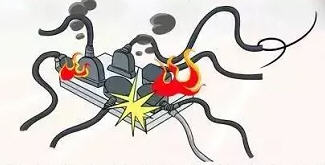
发现教室中的电器设备出现异常,及时向老师报告。
If the electrical equipment in the classroom is found to be abnormal, report it to the teacher in time.
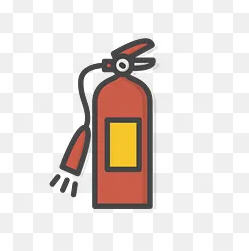
爱护学校的消防器材,比如走廊上的灭火器、疏散指示标志等,确保其完整好用。
Take good care of the school’s fire-fighting equipment, such as fire extinguishers in the corridors, evacuation signs, etc., to ensure that they are intact and easy to use.
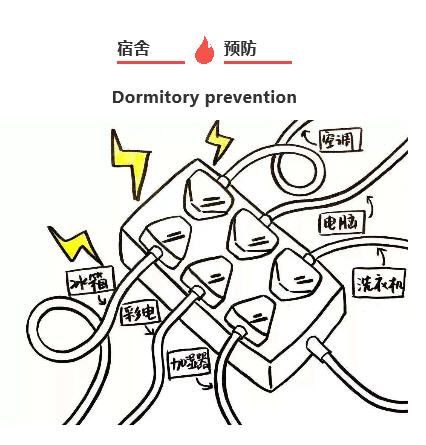
不违规使用大功率电器,使线路超负荷工作。不私自接拉电线。将台灯远离枕头、被褥等易燃物品。
Do not use high-power electrical appliances in violation of regulations to overload the line. Do not connect and pull wires privately. Keep the lamp away from flammable materials such as pillows and bedding.

不在宿舍内随意点蜡烛、蚊香。不擅自使用酒精灯、酒精炉等产生明火的设备。
Do not light candles and mosquito coils in the dormitory. Do not use equipment that generates open flames, such as alcohol lamps and alcohol stoves, without authorization.
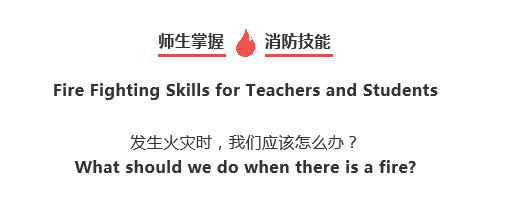
拨打119报警电话
Dial 119 for the police
1.拨打“119”火警电话时,要沉着镇静。
When dialing the "119" fire alarm number, be calm.
2.电话接通后,应清楚地讲明着火的地址(包括路名、街道、巷名、门牌号)。
After the phone is connected, the address of the fire should be clearly stated (including the road name, street, lane name, and house number).
3.尽可能讲清是什么物质着火及火灾的范围,以及被困人数。
Explain as much as possible what substance is on fire and the scope of the fire, as well as the number of people trapped.
4.冷静地回答“119”通信人员的提问。
Calmly answer the questions of the "119" correspondent.
5.电话挂断后,应有人在路口迎接消防车。
After the phone is hung up, someone should meet the fire truck at the intersection.
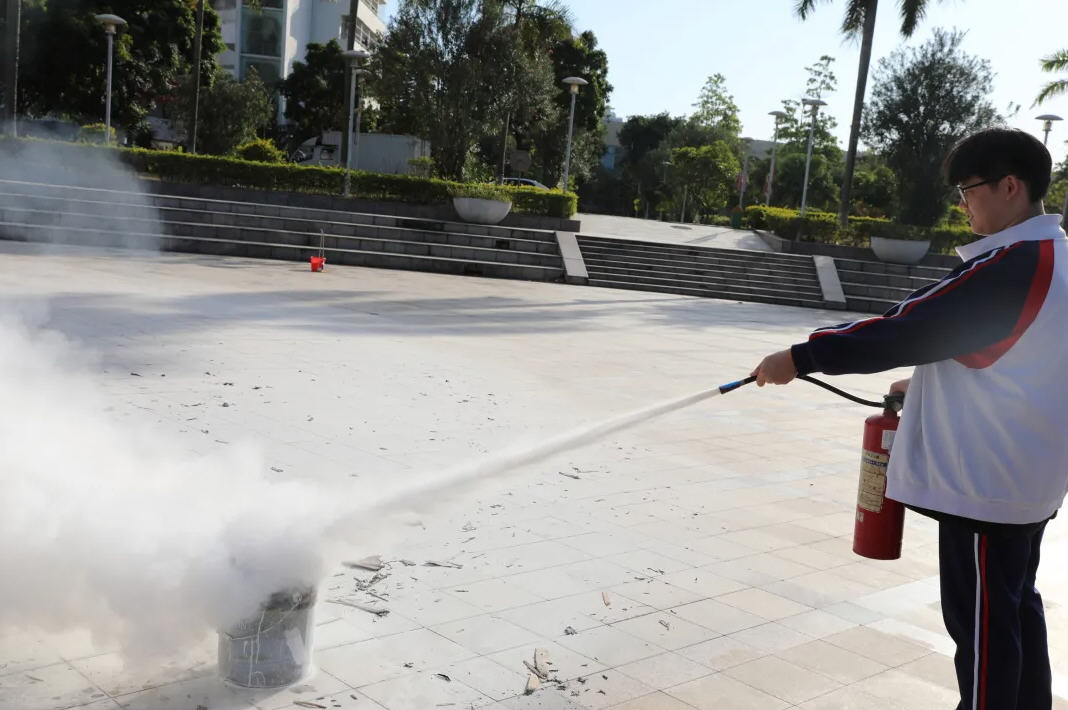
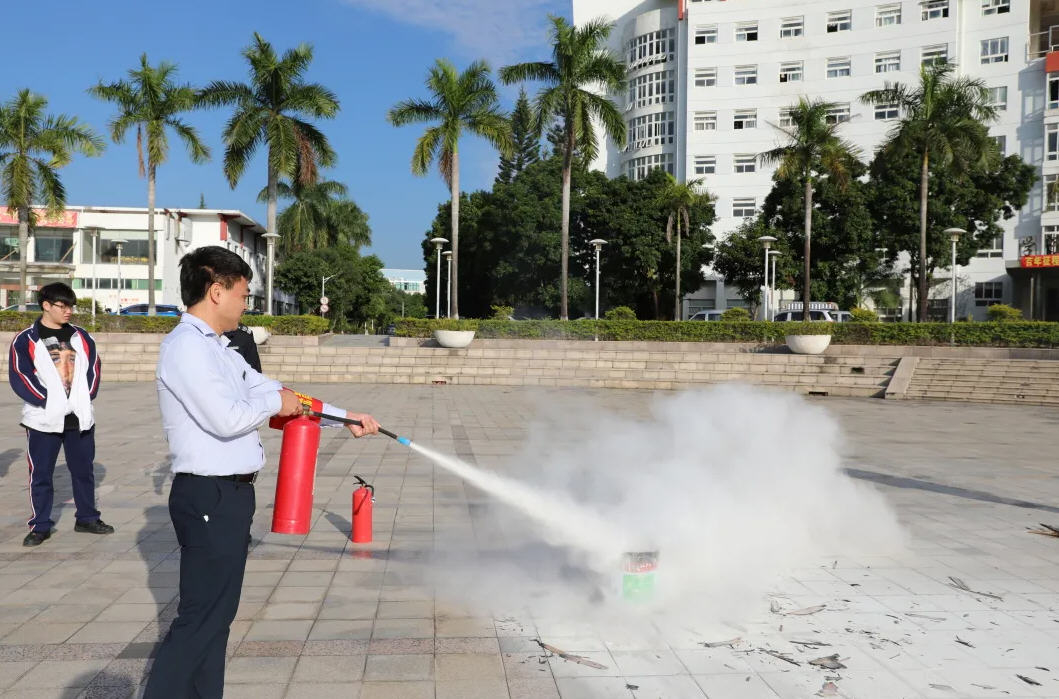
发生火灾时应如何逃生
How to escape in the event of a fire
1.冷静观察着火方位,确定风向,在火势蔓延前,朝逆风方向快速离开火灾区域。
Calmly observe the fire position, determine the wind direction, and quickly leave the fire area in the direction against the wind before the fire spreads.
2.浸湿衣物、被褥等向安全出口方向冲出去,不可乘坐电梯。
Soak clothing, bedding, etc., rush out toward the safety exit, and do not take the elevator.
3.穿过浓烟逃生时,要尽量使身体贴近地面,并用湿毛巾捂住口鼻。
When escaping through dense smoke, keep your body close to the ground as much as possible, and cover your mouth and nose with a wet towel.
4.身上着火,千万不要奔跑,可就地打滚或用厚重的衣物压灭火苗。
If you are on fire, don't run, but roll on the spot or use heavy clothing to press the fire sprouts.
5.若发现外出逃生线路被封,应立即退回室内,用手电筒、呼叫等方式求救。
If you find that the escape line is blocked, you should return to the room immediately and call for help with a flashlight or call.
6.千万不要盲目跳楼。
Don't jump off the building blindly.
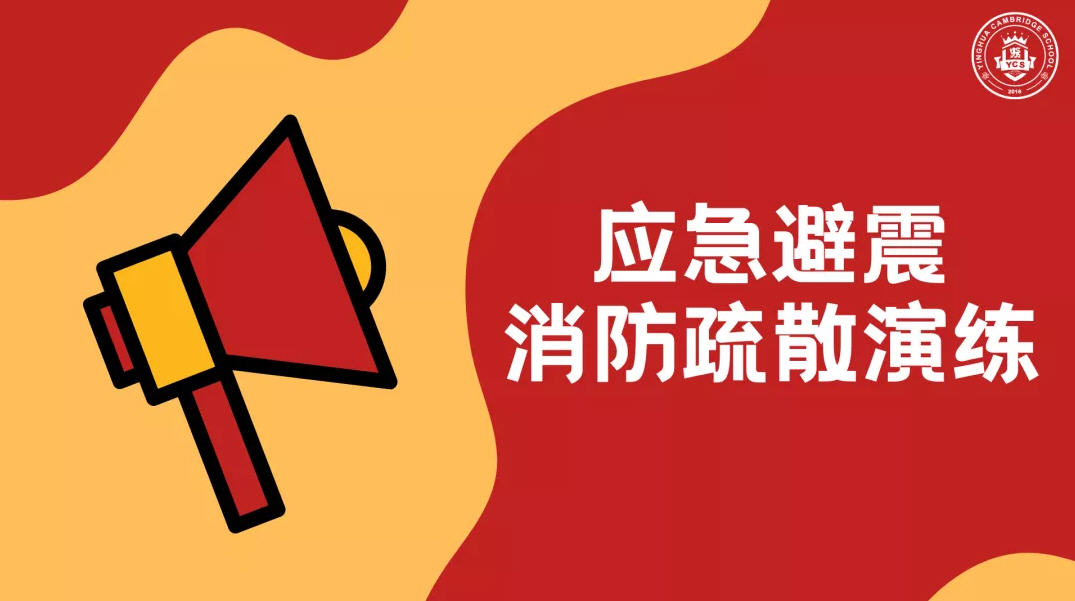
据统计,地球上每年大约发生500万次地震,也就是说,每天都要发生上万次的地震,只不过绝大多数震级较小或者离我们太远,人们感觉不到。
According to statistics, there are about 5 million earthquakes on the earth every year, that is to say, tens of thousands of earthquakes occur every day, but most of them are small in magnitude or too far away from us for people to feel.
开学后,我们每天都要在学校学习、生活,甚至居住,因此,掌握充足的校园防震减灾避险知识和技能对保护我们的生命安全至关重要!
After school starts, we have to study and live at campus every day. Therefore, it is very important to have sufficient knowledge and skills on campus earthquake prevention, mitigation and risk avoidance to protect our lives!
避震方法
Safety measures of earthquake
目前,我们采取的避震原则是:震时就近躲避,震后迅速撤离到安全的地方。
At present, we adopt the principle of avoidance of earthquakes: take shelter nearby during the earthquake, and quickly evacuate to a safe place after the earthquake.
1. 如果在教室,老师和后排最靠近门边的同学应马上分别打开教室、实验室前后门,大家迅速躲避在各自的书桌下、实验台旁边;
If you are in a classroom, the teacher and the student closest to the door in the back row should immediately open the front and rear doors of the classroom and the laboratory, and everyone quickly hide under their desks and next to the laboratory bench;
2. 如果在礼堂、食堂、体育场馆内,内承重墙的墙根、墙角;稳固的书架、排椅,桌椅、运动器具旁边;
If you are in auditoriums, canteens, stadiums, the roots and corners of internal load-bearing walls; beside stable bookshelves, rows of chairs, tables and chairs, and sports equipment;
3. 如果在宿舍,躲避在小开间内,内承重墙的墙根、墙角,床旁边;
If you are in a dormitory, hide in a small room, at the root, corner of the inner load-bearing wall, beside the bed;
4. 如果在室外,要立即蹲下或趴下降低重心,护住头部,避开容易倒塌的高大建筑物,切记千万不能回到没有倒塌的建筑物中,因为余震随时可能发生。
If you are outdoors, immediately squat or lie down to lower the center of gravity, protect your head, avoid tall buildings that are easy to collapse, and remember not to return to buildings that have not collapsed, because aftershocks may occur at any time.
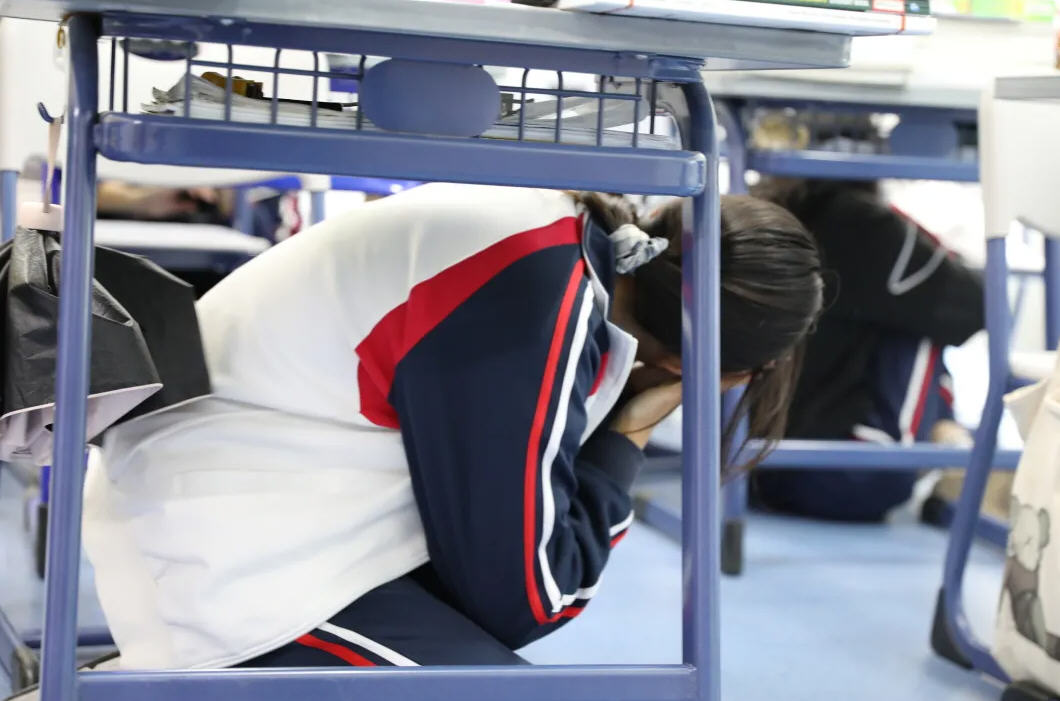
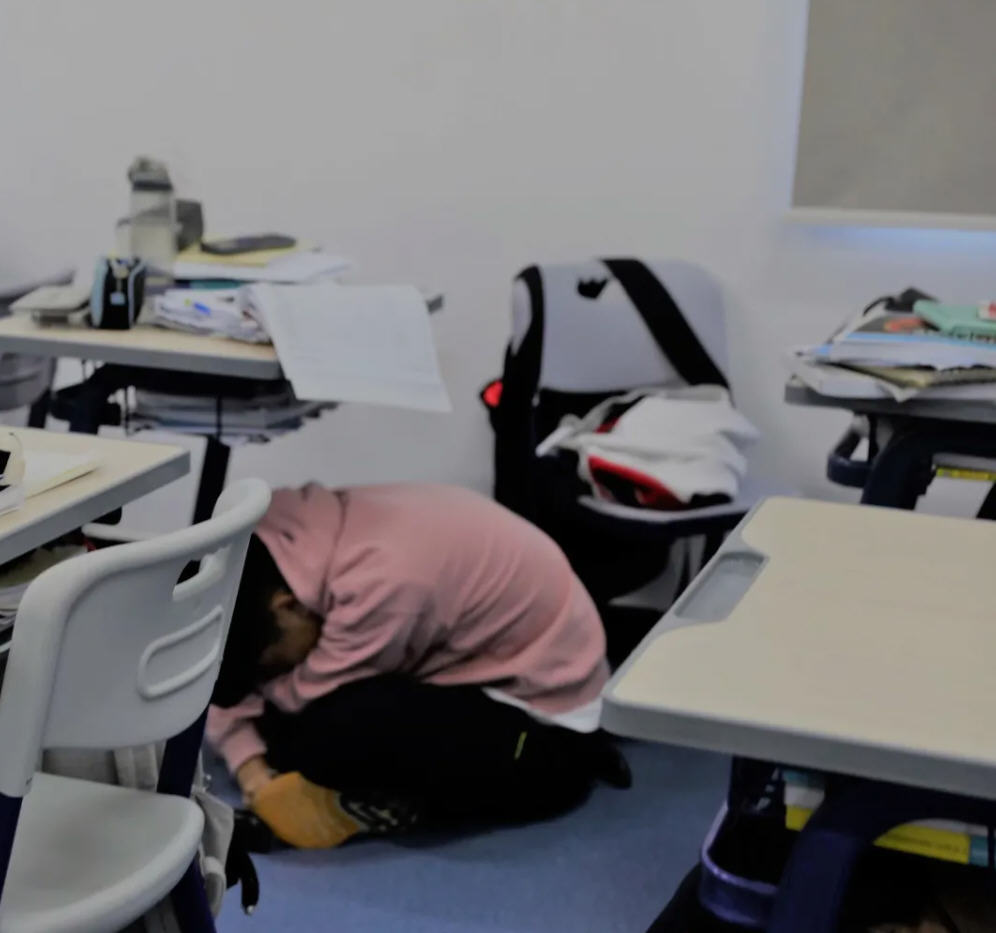
避震姿势
我们采取的避震姿势是:伏地遮挡手抓牢。
The safety posture we adopt is: push down to cover the hand and hold it firmly.
1. 蹲下,尽量蜷曲身体,降低身体重心,缩小面积,额头枕在大腿上,双手保护头部;如在排椅、床旁可趴下,伏而待定;
Squat down, curl your body as much as possible, lower your body's center of gravity, reduce the area, rest your forehead on your thighs, and protect your head with your hands; if you are in a row of chairs or bedside, you can lie down and wait;
2. 如果有条件,还应该拿书本或书包等物品护住头部,用手帕、湿巾等物品捂住口鼻。
If possible, you should also cover your head with books or schoolbags, and cover your mouth and nose with handkerchiefs and wet wipes.
3. 自救要从四个方面努力:挣脱手脚,设法脱险,保持体力,科学求救。
Self-rescue must work in four aspects: get rid of trapped hands and feet, try to escape danger, maintain physical strength, and seek help scientifically.
4. 互救应遵循:先多后少、先近后远、先易后难、先轻后重、先命后人,优先营救医护人员以加强抢救力量。
Mutual rescue should follow the rules: more is better than less; near is better than far away; easy rescue is prior to the difficult one; light stuffs prior to the heavy stuff, and life is prior to any other. The priority is given to rescue medical staff to strengthen the rescue force.
5. 施救时一定要注意:自己安全,被救者也安全;观察周围的不安全因素;注意防避余震。
Pay attention to your own safety and the safety of the rescued; observe the surrounding unsafe factors; pay attention to avoiding aftershocks.